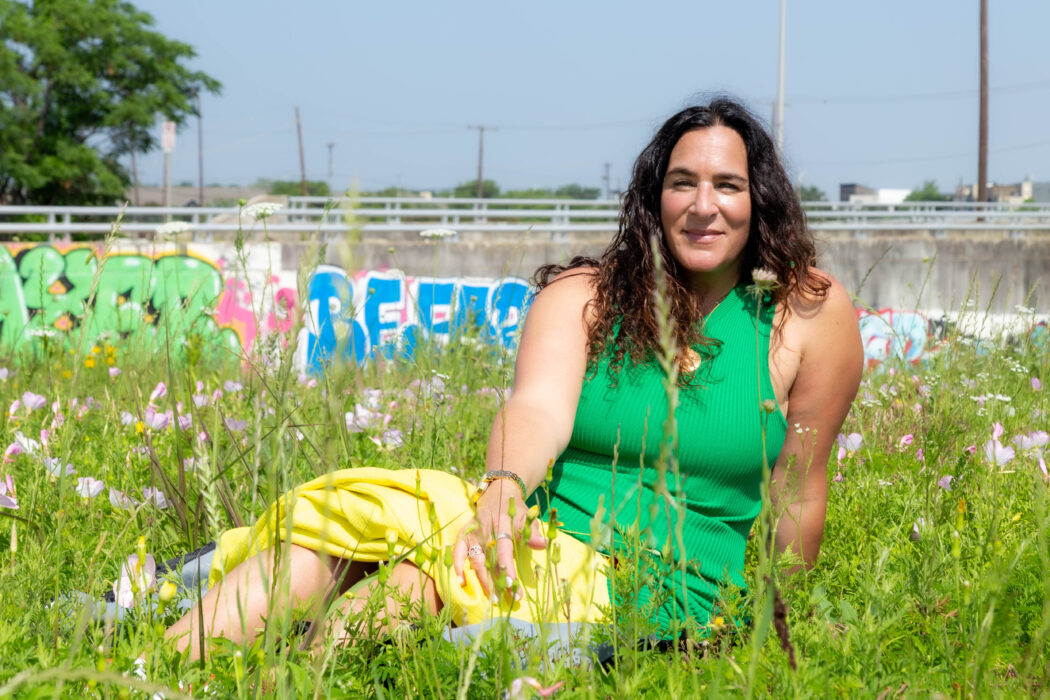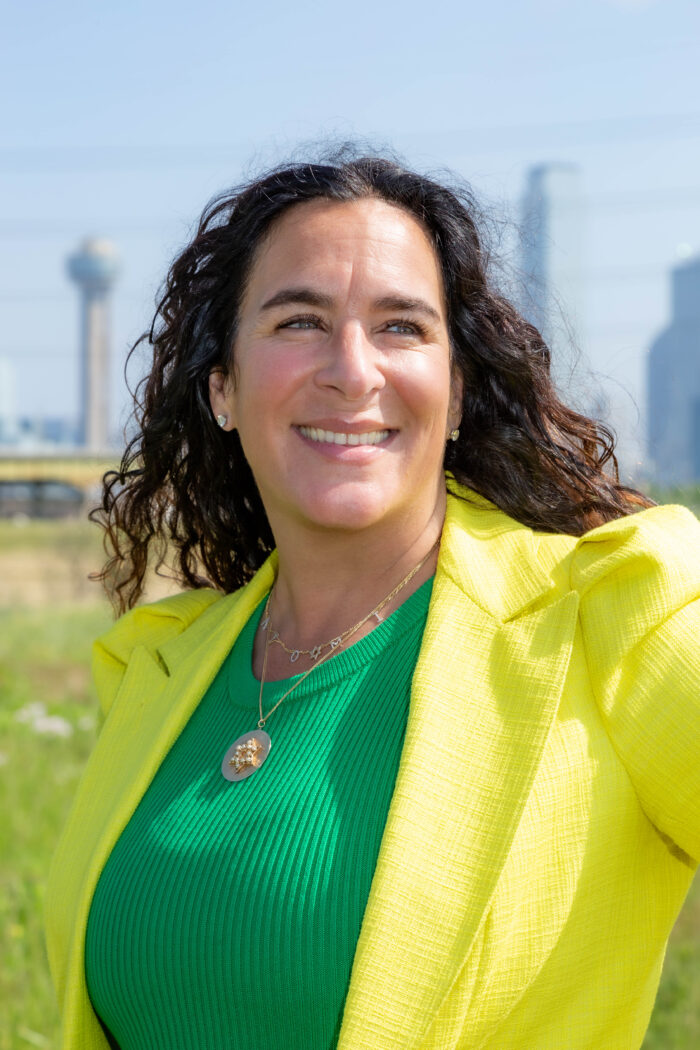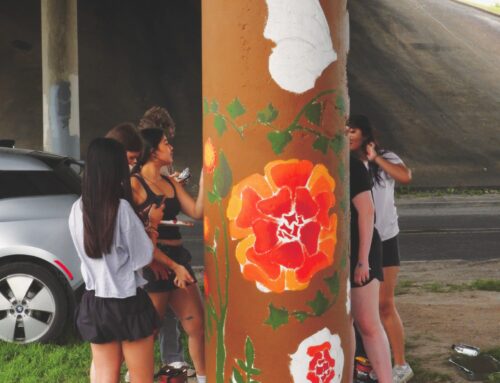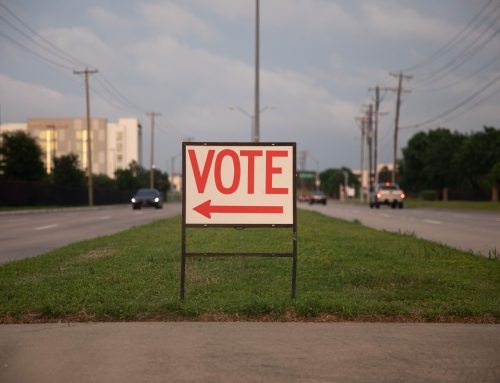
Fonya Mondell represents District 2 on Dallas Park and Recreation Board. Photography by Yuvia Styles.
Los Angeles, California, 1997. A 24-year-old and recent college graduate, Fonya Mondell, has been in the City of Angels for three days when she’s hired as a production assistant and driver for the director of a film. Her pay is $80 a day for 18-hour days, five days a week.
“I wasn’t scared,” Mondell says. “I thought I was going to go into acting. I had headshots I got in New York, and I was going to be an actress, the next Brooke Shields.”
The daughter of filmmakers Cynthia and Allen Mondell, she was introduced to the industry as a child and always participated in theater. But while in L.A., she quickly learned that acting on set is different from acting on a stage, so she pivoted to behind-the-scenes work.
She spent years working on movie sets, surrounded by stars such as Lauren Hutton, Jonathan Silverman, Alison Eastwood, Brendan Fraser and Ian McKellen. In 2004, Telemundo hired her to produce a Spanish soap opera in Dallas.
Other jobs kept bringing her back, so Mondell eventually decided to leave L.A. for Dallas, where she grew up. She now lives in the Knox/Henderson area, just 10 blocks from her parents, who still live in the house where Mondell was raised.
Dallas SWAT and Prison Break are among the series she has produced and directed. Mondell describes herself as a freelancer, though she has worked for Media 13 Studios, East Side Productions, her parents’ nonprofit Media Projects Inc., and has her own company, Fon Film Productions. She has experience with longer projects and has more recently been doing shorter marketing and fundraising videos, which allow more flexibility to stay in town and spend time with her son. But when her son is grown and leaves the house, Mondell says she would like to get back into films, particularly independent films.
Mondell served for 15 years on the advisory board of the East Dallas Boys & Girls Club and represents District 2 on the Dallas Park and Recreation Board.
 What was it like growing up in this part of East Dallas?
What was it like growing up in this part of East Dallas?
It was an amazing experience. The neighborhood in the ’70s and ’80s, all the way through ’90s when I left for college on the East Coast, was blue collar. It was white. It was Hispanic. It was immigrant. It was gay. It was artsy. It was very eclectic.
What did you do for fun?
I went to private school then came home, running around barefoot with my Hispanic friends and going to the kitchen with the grandparents and learning how to cook and do different things. But the neighborhood was full of culture and kids playing in the streets and going out to the neighborhood parks and walking around and exploring. To tell you the truth, my parents have a documentary called The Henderson Avenue Bug Patrol. I think I was 9 at the time. And it was done with the Museum of Natural History, where we had somebody come, and we would explore our neighborhood. We were looking for bugs, and we were looking for new neighbors, and you didn’t feel uncomfortable walking in the streets of the neighborhood. My parents did not allow me to watch TV as a kid. As a matter of fact, I would get punished if the TV was on without permission. So it was always playing outside.
Are there any films that have shaped your work?
La Vida Loca was one of my favorite films back in the day. It was highlighting young, Hispanic women that I felt like, “Oh my gosh, these are the girls that I come home from school and hang out with.” And it was highlighting and showing their life and giving them a voice.
What was it like having parents in the film industry?
My parents are my heroes. They’re amazing. My dad was at KERA for about four or five years and then left to start a nonprofit with my mother where they were their own bosses. They raised the money. They developed the project. They produced and directed the projects. They distributed their projects. I’m an only child, and they were always around. Growing up, my parents did documentaries, and they also did feature-length documentaries where there were reenactments. They would have casting calls, and I was on their sets of film shoots, whether it was real or reenactments. The work that they did was always giving back and teaching others about a different community. I can remember, I was probably 12, and my parents spent the summer in the hottest heat of Dallas, in the West Dallas housing project, filming a documentary about four girls growing up in the West Dallas housing project, four African-American girls. It was called Beauty in the Bricks. I was like, oh my God, my parents are so innovative. They’re so cool. They were different than everybody else. They were teaching people about other cultures. It was an amazing experience. My parents are my best friends. My mom, being a woman in film and in a man’s world of production, she was successful. She paved the way for a lot of women.
What made you want to accept the appointment to the park board?
I’m not interested in being in city politics. I have no desire. I’m just a community liaison. And I tell people, it’s not what I want, it’s what you want in the parks. I’m a community liaison. Let me help you navigate. Let me help you get what you want. It’s not about me. And I know that my voice can help. The park board is a bond-allocating, policy-making administrative board, so the responsibilities to the taxpayers and to the citizens and to the constituents and communities of Dallas is huge. I kind of accepted not knowing exactly what I was going into. I really read all my contracts. I really look at everything because I’m not there to be a rubber-stamper. I’m there to really help make the best choices.
This interview has been edited for clarity and brevity.





